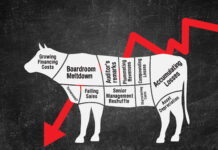The old adage, “the only constant is change” is truer today than perhaps ever before. Businesses are grappling with inflation, economic instability, political volatility, natural disasters – all thrown together with a global recession unlike anything we have seen in the near past. Not the times for the faint hearted for sure. However, in these gloomy days and amidst all these new challenges, the resilience required in finding new ways of doing things has taken on a new meaning. Identifying and implementing different approaches to protect market shares and margins must be at the top of local business agendas.
Two functions which have a direct bearing on business outcomes are marketing and supply chains and it is these areas, in particular, which need to rise to the occasion. Our business leaders can panic when unable to maintain sales at a profitable price and live in the fear of margins being wiped out. What follows in this piece is how leaders need to guide these functions and make them work together seamlessly.
Let’s start with marketing, which for this piece includes sales and any other activities related to the customer. Many companies are unable to hold sales volumes required for sustainable operations, especially in the current environment. The simplest reaction from the marketing team is to drop prices to maintain sales while the leadership would like to maintain margins as well as volumes in passing on the cost increases. This dialogue eventually settles at one end or the other but without deeper analysis one is likely to lose in either direction. Customers can react differently to price increases, depending on how price sensitive they are. But the challenge is to move customer interaction beyond price. Marketing teams need to consider the following;
- Do we understand customer pain points besides price? If so, can we leverage some of these – payment terms, delivery dates, logistics cost etc.
- Is there room to improve / change service levels?
- Can we segment the market so that prices on all products are not increased or dropped in one broad brush?
- Can the product be reengineered? Are there opportunities to save on materials, production processes, labour?
Unless you are in a commodity business, which really does not require marketing skills of any kind, a simplistic price increase or reduction will most likely mean leaving margin on the table. Understanding the customer in deeper ways not only allows the business to price intelligently but also helps foster new bonds.
Procurement and supply chain functions are the other major contributors to business profitability. They play a critical role in enhancing resilience by serving as a bridge between the business and its suppliers. As in the case of marketing, too many supply chain functions apply simplistic models in their relationships with the outside world. Buying or not buying cannot be a function of price alone since a broader set of levers are required to create real value. Supply chain managers and leaders ought to consider the following;
- Is Supply chain a CEO priority?
- Have we considered areas such as service levels, inventory, product quality and flexibility? In addition to price?
- Are there ways to benchmark buying KPIs with like-to-like industry/competitors?
- Can we improve demand/supply forecasting, which has a fundamental relationship with supply chain efficiency?
Finally, with the best of marketing and supply chain capabilities, the elephant in the room is bringing it all together and creating functional collaboration like it was never before. There is no better way to fight external uncertainties than forging a team which backs each other. Of particular importance is the leadership’s role in creating cross-functional collaboration. Breaking down silos and improving visibility across functions is how the organisation gains true resilience.
Failing to coordinate across functions can be expensive. A manufacturing supply chain head of a large domestic company thought he was doing a great job when he procured an essential raw material in advance looking at the impending price increase. Unfortunately, this was never tied up with the marketing manager who was losing customers for products based on that particular material due to an environmental issue. The business ended up with a massive inventory of a material which could not be used, together with a bleeding balance sheet! This is a typical end result of an organisation working in silos. Other instances may not be so drastic but deeper analysis will reveal either money lost directly or in terms of opportunity cost.
To avoid such mistakes, organisations should build collaboration platforms which enable rapid decisions and execution. The usual monthly business meetings cannot be enough to act in a fast-changing situation. Some sort of steering committees where decisions can be taken promptly may be the best way to go.
Businesses need to harness information technology as a core enabler across many functions with the marketing and supply chain being at the front end of using data and analytics. This will require new talent and capabilities together with significant changes in mindsets. Many of our businesses are unfortunately still operating in traditional information technology mindsets and even struggling with basic ERP implementations. It is, therefore, going to be a long journey to using sophisticated analytics, but they need to get started with a sense of urgency.
The opportunities in a crisis-like situation which we have today must stem from improvements in the quality of management thinking, planning and execution. The lessons learned from across the globe need to be understood and applied in Pakistan to not just survive but also prosper. This is not the first or the last time we will see an uncertain landscape. Management teams cannot stay in the past and those which do, will pay a big price.
























Welcome to Versatile Coupons, the final location for getting a versatile deal on your internet-based buys. Our central goal is to assist customers with enjoying you find the best arrangements and limits on the items you love. We comprehend that setting aside cash can be intense, particularly while shopping on the web. That is the reason we’ve made it our objective to present to you the best-in-class coupons and markdown codes from top retailers. Whether you’re looking for garments, gadgets, or home merchandise, we take care of you.